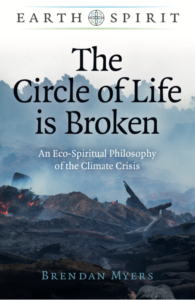
The Circle Of Life Is Broken
An Eco-Spiritual Philosophy of the Climate Crisis
From the 1960s onward, philosophers, artists and spiritual teachers promoted the idea of the ‘Green Self’ to help us understand how the Circle works, and how we harm ourselves when we damage it.
But in all that time, the climate crisis only got worse. The Greening of the Self didn’t happen.
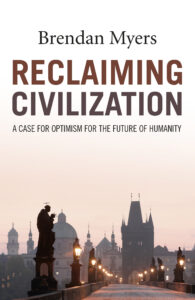
Reclaiming Civilization
A Case for Optimism for the Future of Humanity.
What is civilization? And is it a good thing?
It’s a name for the most glorious of humanity’s monuments and cultural achievements. Yet it also speaks of the conquests, oppressions, and empires which make that glory possible.
It’s the process by which we find what it is to be human– not by discovery, but by invention.
This book explains the essence of civilization, then asks what’s wrong with it, and considers what can be done about it.
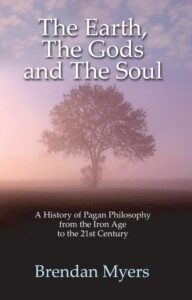
The Earth, The Gods, and The Soul
A History of Pagan Philosophy, from the Iron Age to the 21st century
Philosophy was invented by pagans. Yet this fact is almost always ignored by those who write the history of ideas. The Pagan philosophers are a surprisingly diverse group: from kings of great empires to exiled lonely wanderers, from devout religious teachers to con artists, drug addicts, and social radicals. Three traditions of thought emerge from their work: Pantheism, NeoPlatonism, and Humanism, corresponding to the immensities of the Earth, the Gods, and the Soul. From ancient schools like the Stoics and the Druids, to modern feminists and deep ecologists, the pagan philosophers examined these three immensities with systematic critical reason, and sometimes with poetry and mystical vision. This book tells their story for the first time in one volume.
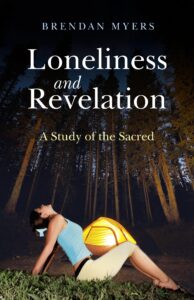
Loneliness and Revelation
Everyone experiences loneliness in their lives. Yet most people do nearly anything to avoid it. Few are willing to talk about it at all. This book shows that loneliness is not simply a social phenomenon, nor a medical condition. Rather, it is an existential condition of life. So you can’t turn to other people, or true love, for a solution. Nor can you turn to God, for God is probably lonelier than you are! But loneliness is not evil. Indeed it can be a source of profound spiritual insight. Great religious heroes like Moses, Jesus, Buddha, and Mohammad made their most important spiritual revelations in solitude. This book offers a new understanding of the idea of Revelation, as a way of being in the world which gives spiritual significance to the arts, human relationships, love, and indeed to loneliness itself.
This title is not available at B&N.
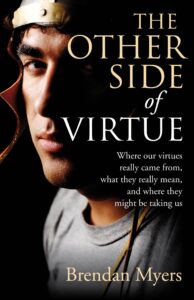
The Other Side of Virtue
The Celts, the old Norse and Germanic people, the Greeks of the time of Homer and Hesiod, and other ancient heroic societies are popularly believed to be tribal warrior cultures, where the light of civilisation had not yet dawned. In fact this is far from the case. Many of our own most fundamental ideas about politics, justice, friendship, true love, the good life, and especially the notion of Virtue itself, come from their world. To them, Virtue had nothing to do with purity, nor modesty, nor God-given laws, nor sin and guilt, nor with any Sunday-school pretentiousness. Rather, it originally meant ‘excellence’ and ‘greatness of soul’. It was tied to more assertive qualities like strength and courage, and to social qualities like friendship. It was also connected to spiritual principles like the nature of the soul, the hope for immortality, and even the pursuit of happiness itself.
The Other Side Of Virtue explains the world-view that gave birth to our virtues. In that world-view, life involves inevitable confrontations with inexplicable events like fortune, nature, other people, and death itself. However, the good life itself becomes possible when we face them and respond to them.
This title is not available at B&N.
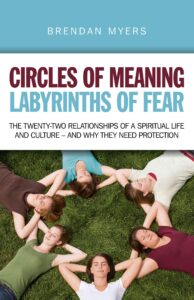
Circles of Meaning, Labyrinths of Fear
The Twenty-Two Relationships of a Spiritual Life and Culture – And Why They Need Protection
You’ve heard of sacred places, writings, relics, and rituals, holy days and magical times of year. But these are actually representations of relationships that people have with each other and the elements of the world. Some of these relationships environmental: they involve landscapes, animals, and the streets of your home town. Some are personal, such as families, friends, and elders. Some are public, involving musicians, storytellers, medical doctors, and even soldiers. This book studies twenty-two relationships, from a variety of traditions, and shows their place in ‘the good life’. Yet these relations are always fragile, and threatened by fears, from the fear of loneliness, to the fear of the loss of personal or political freedom, to the fear of death. To escape from these fears, people often trap themselves into ways of life that are bad for everyone, including themselves. This book studies how that happens, and how to prevent it.
More than beliefs, laws, and teachings, our relationships are the true basis of spirituality, and freedom.
This title is not available at B&N.
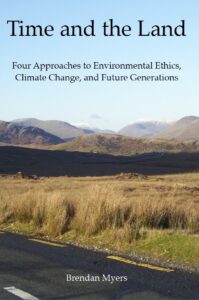
Time and the Land
Four Approaches to Environmental Ethics, Climate Change, and Future Generations.
What is the ethical significance of the environment? How shall we dwell on, and with, the earth? And what, if anything, do we owe to future generations? “Time and the Land” pursues these questions through each of the four most prominent theories of ethics in the western philosophical tradition: Utilitarianism, Distributive Justice, Kantian Deontology, and Virtue Ethics. For each theory, Derek Parfit’s Non-Identity Problem serves as a test case. Parfit showed how some environmental policy decisions might harm no one in the far distant future, even if they produce situations all would agree are intrinsically repugnant. Myers seeks a theory of environmental ethics that not only responds to pressing moral problems in environmental policy, but also avoids the paradox of the Non-Identity Problem. Myers concludes that no single theory by itself can accomplish this task. A synthesis of ethics is required: but Virtue must lead the way.
Time And The Land is Brendan’s doctoral dissertation (NUI Galway, 2006).
This title is not available at B&N.